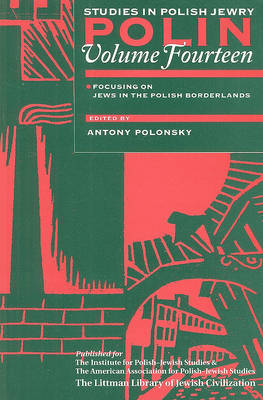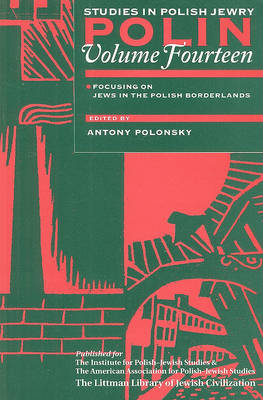
- Retrait gratuit dans votre magasin Club
- 7.000.000 titres dans notre catalogue
- Payer en toute sécurité
- Toujours un magasin près de chez vous
- Retrait gratuit dans votre magasin Club
- 7.000.000 titres dans notre catalogue
- Payer en toute sécurité
- Toujours un magasin près de chez vous
70,95 €
+ 141 points
Description
The Polish-Lithuanian Commonwealth, created in 1569, covered a wide spectrum of faiths and languages. The nobility, who were the main focus of Polishness, were predominantly Catholic, particularly from the later seventeenth century; the peasantry included Catholics, Protestants, and members of the Orthodox faith, while nearly half the urban population, and some 10 per cent of the total population, was Jewish. The partition of Poland at the end of the eighteenth century and the subsequent struggle to regain Polish independence raised the question of what the boundaries of a future state should be, and who qualified as a Pole. The partitioning powers, for their part, were determined to hold on to the areas they had annexed: Prussia tried to strengthen the German element in Poland; the Habsburgs encouraged the development of a Ukrainian consciousness in Austrian Galicia to act as a counterweight to the dominant Polish nobility; and Russia, while allowing the Kingdom of Poland to enjoy substantial autonomy, treated the remaining areas it had annexed as part of the tsarist monarchy. When Poland became independent after the First World War more than a third of its population were thus Ukrainians, Belarusians, Germans, Jews, and Lithuanians, many of whom had been influenced by nationalist movements. The core articles in the volume focus especially on the triangular relationship between Poles, Jews, and Germans in western Poland, and between the different national groups in what are today Lithuania, Belarus, and Ukraine. In addition, the New Views section investigates aspects of Jewish life in pre-partition Poland and in the nineteenth and twentieth centuries. There are also the regular Review Essay and Book Review sections.
Spécifications
Parties prenantes
- Auteur(s) :
- Editeur:
Contenu
- Nombre de pages :
- 478
- Langue:
- Anglais
- Collection :
- Tome:
- n° 14
Caractéristiques
- EAN:
- 9781874774709
- Date de parution :
- 01-10-01
- Format:
- Livre broché
- Format numérique:
- Trade paperback (VS)
- Dimensions :
- 155 mm x 231 mm
- Poids :
- 748 g







